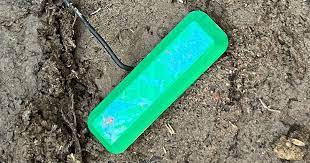Gadgets
This soil-powered fuel cell, according to scientists, can "run forever."


By - 18 Jan 2024 02:41 AM
A group out of Northwestern University in Illinois has created a novel fuel cell that they say can draw energy from soil-dwelling microorganisms.
The fuel, which is about the size of a book, may be utilized to power subterranean sensors for precision farming and green infrastructure. It might develop into a viable, renewable replacement for batteries made of hazardous, flammable chemicals that seep into the earth when buried. Additionally, the resources needed to make batteries are obtained through supply chains impacted by conflict and add to the waste generated by electronics.The new fuel cell was tested by the researchers by powering touch and soil moisture sensor sensors. The results were published in the Proceedings of the Association for Computing Machinery on Interactive, Mobile, Wearable, and Ubiquitous Technologies. One can track passing animals with the former capability. In order to relay data to a nearby base station by reflecting pre-existing radio frequency signals, the researchers additionally equipped the soil-powered sensor with a tiny antenna.
“The number of devices in the Internet of Things (IoT) is constantly growing. Even if we envision a world where trillions of these devices exist, we are unable to construct each and every one of them using hazardous materials like heavy metals, lithium, and environmental pollutants. We need to find alternatives that can provide low amounts of energy to power a decentralized network of devices. In a search for solutions, we looked to soil microbial fuel cells, which use special microbes to break down soil and use that low amount of energy to power sensors. As long as there is organic carbon in the soil for the microbes to break down, the fuel cell can potentially last forever,” said Northwestern alumnus Bill Yen, who led the work, in
























